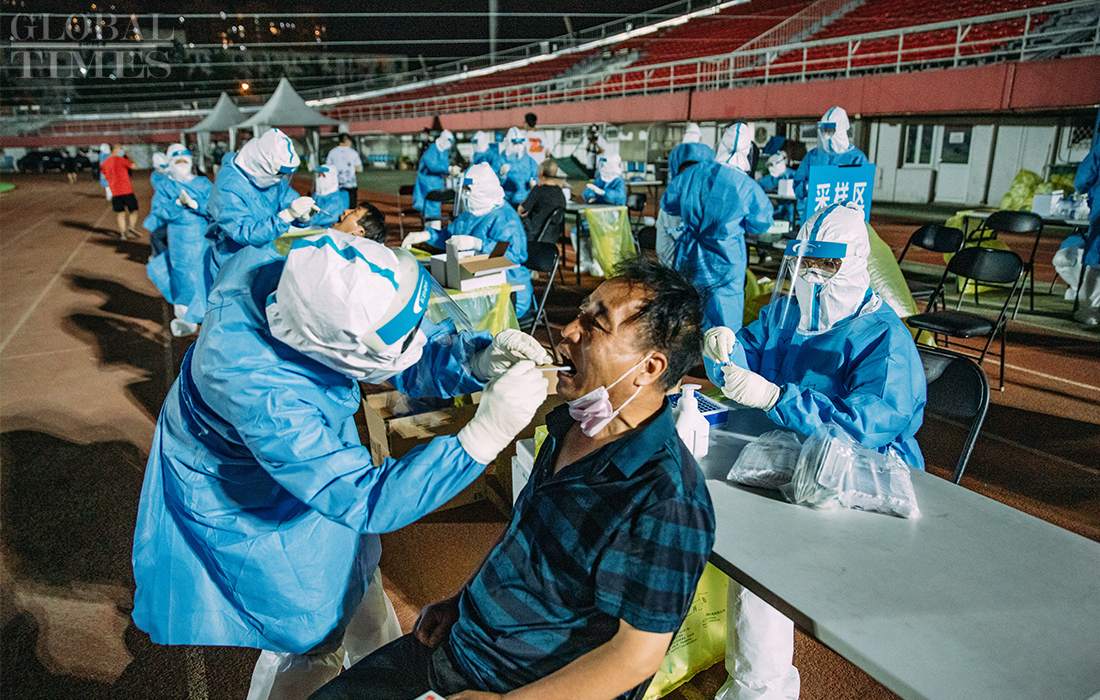2.29 million samples collected for COVID-19 tests in Beijing
Source:Global Times Published: 2020/6/20 19:08:43

Photo: Li Hao/GT
Beijing reported 22 new confirmed coronavirus cases on Friday, with the youngest infected being a 1-year-old and the oldest a 56-year-old. The city has sampled a total of 2.29 million people for nucleic acid tests during its screening for COVID-19 cases between June 11 and 20, local authorities said at a regular press conference on Saturday to brief on updates regarding the outbreak in Beijing.
Persons who didn't have contact with people at Beijing's Xinfadi seafood market between May 30 and June 12 have a very low risk of being infected with COVID-19. There's no need for them to rush to have nucleic acid tests in droves, medical experts from Beijing's Center for Disease Control and Prevention said at the conference.
While no foodstuffs, including seafood, can be infected with coronavirus, it may be possible the products or their packaging materials were contaminated with the virus, Li Fengqin, director of the microbiology laboratory at the China National Center for Food Safety Risk Assessment, said.
The capital has given priority to large-scale nucleic acid testing among employees in 36 high-risk industries amid the COVID-19 epidemic such as catering, supermarkets, shopping malls, trade markets and food deliveries.
Two of the 22 confirmed COVID-19 cases in Beijing on Friday were reported to work at a food factory.
Beijing is conducting large-scale nucleic acid testing of food delivery workers and couriers to reduce infection risks amid the coronavirus outbreak, according to officials at the press conference.
All residents of 40 sealed-off communities in Beijing have been asked not to leave their homes to avoid cross infection, Zhang Qiang, an official with Beijing's COVID19 prevention team, said at the conference.
People under 14-day collective quarantine in Beijing for medical observation can only be released if their nucleic acid test results are negative at the end of quarantine.
At present, a total of 474 sample collection sites and 2,083 sample booths have been set up at both urban and rural areas in the capital, with 7,472 workers having been mobilized to participate in the screening across the city, Zhang said.
Global Times
Posted in: SOCIETY